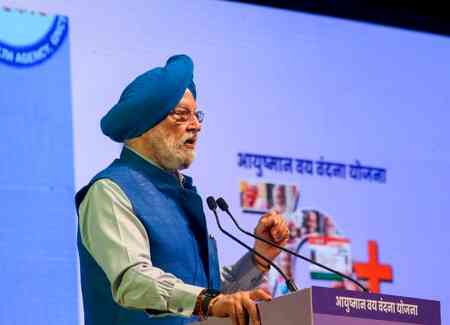NPCI working on model to identify mule accounts: Ajay Kumar Choudhary
As financial crime and fraud surge in the country, the National Payments Corporation of India (NPCI) is working on advanced technologies to identify and curb "money mule" accounts and a pilot run is underway, Ajay Kumar Choudhary, non-executive chairman and independent director of NPCI, said on Thursday.

Mumbai, Aug 29 (IANS) As financial crime and fraud surge in the country, the National Payments Corporation of India (NPCI) is working on advanced technologies to identify and curb "money mule" accounts and a pilot run is underway, Ajay Kumar Choudhary, non-executive chairman and independent director of NPCI, said on Thursday.
Mule accounts are owned by people who are duped by fraudsters into laundering stolen/illegal money via their bank accounts. When such incidents are reported, the "money mule" becomes the target of investigations due to their involvement.
Speaking at the ‘Global Fintech Fest’ (GFF) here, Choudhary said that it is essential to not only embrace new technologies but also to strengthen cooperation and create awareness among all stakeholders to protect the integrity of the financial system.
The NPCI has taken various initiatives in this regard by way of public campaign and development of advanced technologies-based ‘Fraud Risk Monitoring and Management’ solutions.
“Further, a new model has also been developed to identify mule accounts, and it is under pilot run,” said the NPCI chief.
According to a recent report by digital fraud detection leader BioCatch, the number of mule accounts are surging and third-party account takeover fraud (55 per cent of all frauds in the country) represents a bigger threat than social engineering scams.
Every device found to participate in mule activity in India logged into an average of 35 accounts each and fraudsters are likely accessing Indian mule accounts from outside the country, the report noted.
The Reserve Bank of India (RBI) has also recommended that financial institutions abandon text-based, one-time passcodes as a method of secure authentication.
Choudhary highlighted that while the convergence of AI, tokenisation, blockchain, embedded payments, quantum computing, digital currency and other emerging technologies are opening up new possibilities, these also pose significant challenges.
“We must address the associated risks with foresight and collaboration to ensure that these technologies are used responsibly so that they prioritise ethical practices, embrace diversity, and strengthen financial stability,” Choudhary told the gathering, adding that India's journey in fintech is a story of vision, resilience and adaptability.
The country’s leadership in fintech is also evident in the international arena under the ‘global digital public good initiative’ by the NPCI to support a robust, fast payment system globally, and connect the world through sustainable, equitable and inclusive payment corridors and technologies.
He also emphasised the need for a balance between fostering innovation and managing the associated risks which requires a robust governance framework that prioritises customer-centricity, transparency and accountability.


 IANS
IANS 










